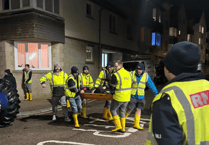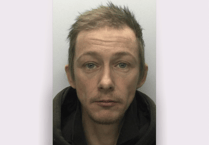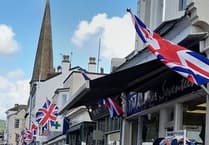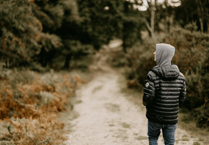► So your journey into music started quite young, who were your inspirations when you were growing up?
There was a lot of blues around in the ’70s, a band called Free were my favourite band which was very blues-based. But as well as the Blues, I also really liked folk music and soul, even back then. So James Taylor, who’s still going strong, Stevie Wonder and stuff like that.
► But you ended up becoming predominantly a vocalist, how did that happen?
I started on bass guitar because I wanted to be in a blues-based rock band, I was so eager to just do anything just to get into a band. But once I’d been in a couple of local bands, I fancied singing a couple of songs. There was a bit of resistance at the beginning, but then they started letting me do a couple, and then a couple more.
I eventually managed to become the lead singer of a band from Harrow after they heard me practising in a studio. When I started singing I immediately felt a connection. When you’re playing an instrument, you have to put your personality and emotions into playing that instrument. When you’re using your voice as your instrument I felt the direct contact more and I really liked it, you know what I mean?
► I wish I did! With that background, do you feel now that when you perform that you’re conscious of the band because you’ve been in the roles of your fellow band members?
Yeah, I did rudimentary lessons on piano and guitar, I was doing that to get to know more musically, but I did feel that singing was the natural way for me to go. But all that playing of different instruments really helped to sync things in my brain.
► So it seems like throughout your career you’ve gravitated towards music that isn’t traditionally popular over here. It that fair to say?
Yeah, I’d say that. And also in my solo career, I was always banging heads with the record company about what I should or shouldn’t be doing versus what I wanted to be doing. And I still feel that some of the best work that I did was when the record company got out of the way!
Even when I did duets for LiveAid, they wanted me to go with a big artist but I chose a small Italian singer called Zucchero. It ended up being great with him!
► What makes you choose these more obscure genres, do you just fall into them by chance of your interest or was it something that that you actively look for off the well-trodden track of British music?
Yeah, I often do like to go a little off the track, like another collaboration that I did was with the Celtic band Clannad, which is not what people would expect us to do which is great. And Los Pacaminos is another part of that. I was actually without a record deal at the time, so I just picked up an instrument again and played with some friends and we started playing some Tex-Mex.
I stumbled upon the genre by accident but I thought that it sounds like fun, I want to learn a different style of music, I want to play the guitar again and do it for a few years and then I’ll get another solo deal and move on, but 30 years later we still haven’t stopped.
► And you started the band for yourselves, rather than for commercial reasons. Does that change the dynamic and do you think that’s helped you to keep it fresh over the last 30 years?
Yeah, I think so. It’s a bit of a tongue-in-cheek genre. It’s all about real-life mistakes. We’ve all picked the wrong girlfriend and made the same mistakes, and we all think we’ll learn but we never do. It’s a reflection of those things. But the views are still very old-fashioned, like when you fall in love, you fall in love, and when it stops, you hurt. But sometimes they’ve got an element of humour in them too.
We’ve all known each other for years, we’ve all got a similar sense of humour and when we get together we just start laughing - when it’s time to go on we carry those emotions onto the stage and it carries on being a laugh. So we always end up entertaining ourselves just as much as the audience.
► So clearly in Los Pacaminos, you can hear the influence of Mexico and the Deep South, where did that inspiration come from? What was it from that music that spoke to you?
I’ve always loved music that comes from the South, because it’s always got that slight Latin feel to it. People know me from being in a soul band and doing some R&B and they think this is different. But if you listen to songs through the 60s, there are loads of songs with Latin rhythms.
Historically, the reason for that is that most of the writers of that stuff were Jewish, and they lived in the same run-down areas that the African Americans and Cubans did. So you got this wonderful side-by-side of musical communities where everyone was rubbing shoulders. So in actual fact, it’s nowhere near as far away from soul as you’d think.
► What was the reception 30 years ago when you first introduced these new sounds to Britain?
I thought that if I’m going to do another band, I wanted to do something that no other bands are doing. At first, people were a little quizzical about it. But fans of my solo stuff come along and they end up getting into it because they saw us all enjoying ourselves so much and had a good time as well. Now I have many fans who enjoy the stuff that Los Pacaminos do more than my solo stuff, they’ve moved across.
► That’s great to hear. And I think when you look at artists such as yourself that have had long careers, they have done so by changing things up - and looking at your discography you can see that each album does something different.
Yeah, I’m glad you said that. I feel that each album moves on from the one before and I’m going into different areas and trying new things.
► You’ve become very popular across much of the world as well as in the UK, putting you on the road an awful lot touring. Do you enjoy that side to it?
Yes, I do. Well, at first I was made to enjoy it. In the first and second bands that I was in, especially the Q-Tips, we hadn’t had a hit yet so the only way to make money was being on the road. So learned my stage craft with the Q-Tips. When we finally had a hit, I was ready because I’d already been touring for years.
► Any favourite times or places?
Oh, there are too many, I’ve been to so many places I forget. But any chance I get to go to the south of America is the best, anywhere from Florida to California.
► Some of your solo stuff but particularly Los Pacaminos reminds me a little of that mentality in the South of the open road - do you think that came from your experiences or at least your affiliation to that sound?
Definitely, we’re dreaming, dreaming of being down there. It made such an impression on me. It’s escapism. I feel like I’m down in the Deep South of America. I really like music that takes you away from where you are.
I’ve loved a band called Collexico for years - much of what they do is instrumentals, but you just feel like you’re in a hot dusty world and I like the way that it puts my head into a different world.
► So from the Deep South of the US to the Deep South of England, you’re coming to Teignmouth on the 6th! Have you had much contact with the Westcountry in the past?
We have, in fact, there was a period when Los Pacaminos was about ten years old and we were down in the Westcountry on a regular basis. It’s picking up again now, we did a show in Exmouth a few months ago which was really nice. I love it there, my brother’s down there too so it’s good.
► Have you been down to Teignmouth before?
Yes, I have! Lovely place. I don’t remember places properly until I return to them and then it all comes flooding back so I’m looking forward to it.
► What can people coming to see you expect?
They can expect a jolly good time! Another great thing about the band is that you get a change of scenery, because we’ve got three guys, all with great voices, so we can chop and change a lot and shake things up.
Everyone that comes down will have a great evening.





Comments
This article has no comments yet. Be the first to leave a comment.